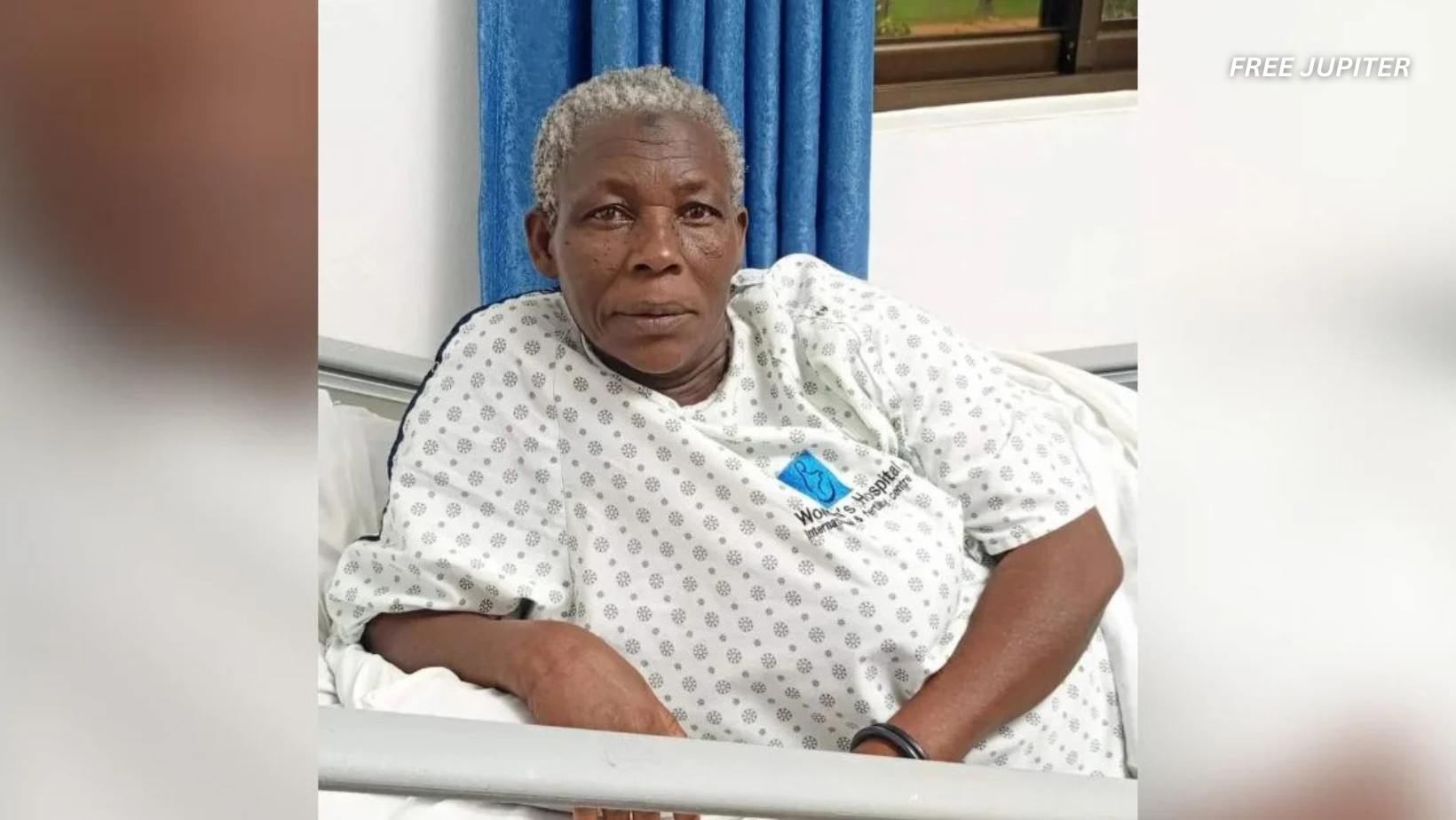Friendly Note: FreeJupiter.com shares general info for curious minds 🌟 Please fact-check all claims—and always check health matters with a professional 💙
In a heartwarming moment that stunned even seasoned doctors, 70-year-old Safina Namukwaya from Uganda gave birth to healthy twin babies—a boy and a girl—via cesarean section. Her journey into motherhood at this age, assisted by IVF, has not only made headlines but sparked global conversations about what science, hope, and human willpower can achieve together.
The births took place at the Women’s Hospital International and Fertility Centre (WHI&FC) in Kampala. The hospital’s statement was less about medical jargon and more about admiration: “This is not just a medical success; it is a triumph of the human spirit.”
A Modern Miracle, Made Possible by IVF
Namukwaya’s pregnancy happened thanks to in-vitro fertilization, commonly known as IVF. With her partner’s sperm and a donor egg, fertilization took place outside her body in a lab. Then, the embryo was carefully placed in her womb.
Although the twins were born prematurely at 31 weeks, doctors say both are stable and safely recovering in incubators. Dr. Edward Tamale Sali, a fertility expert at the hospital, oversaw the process and confirmed that the mother and babies are doing well.
This wasn’t Namukwaya’s first experience with motherhood either. In 2020, she gave birth to a daughter—her first child—at the age of 67. For decades, she had been childless and said she was often mocked by others for not having children.
“I looked after people’s children and saw them grow up and leave me alone. I wondered who would take care of me when I grow old,” she said.
Her desire to have children wasn’t just about biology—it was deeply personal.
The Emotional Cost of a Late-Life Pregnancy
Namukwaya also opened up about the emotional challenges she faced during her latest pregnancy. When her partner discovered she was expecting twins, he disappeared.
“Men don’t like to be told that you are carrying more than one child,” she told a local newspaper. “Ever since I was admitted here, my man has never showed up.”
Despite the heartbreak, she carried on. And now, she’s not only defied biology, she’s proven that determination sometimes counts just as much as science.
Read more: Scientists Discover That Increased Oxygen Helps the Brain Grow More Neurons Early in Life
Related Stories: When Age Meets Motherhood
Around the world, a small but growing number of women are rewriting the rules of motherhood—proving that, with the right mix of science, support, and sheer determination, age is becoming less of a barrier and more of a bold headline.
India’s 73-Year-Old Twin Mom: A Quiet Village, A Global Shockwave
In 2019, Erramatti Mangayamma, a retired farmer’s wife from Andhra Pradesh, India, made international news when she delivered twin girls at the age of 73. Her story unfolded in a small village where access to medical breakthroughs is typically limited—but her dreams were big.
Married for over 50 years without ever conceiving, Mangayamma faced constant social judgment and isolation in a culture where childlessness is often stigmatized. Determined not to give up, she and her 80-year-old husband sought help from a fertility clinic. Using a donor egg and IVF, her dream finally became reality.
The babies were delivered via cesarean section, and the mother was closely monitored throughout the pregnancy. Though the physical toll was significant, the emotional victory was profound.
“People used to call me the childless woman,” she told local media. “Now, they look at me differently.”
While the delivery was a success, not all reactions were celebratory. Critics raised serious concerns about the parents’ advanced age and their ability to care for infants long term. The ethical debate continues—but for Mangayamma, it was the culmination of a lifelong hope.
Spain’s 64-Year-Old Mother and the Custody Controversy
In 2016, another high-profile case emerged in Spain, where a 64-year-old woman gave birth to twins through IVF. The pregnancy, carried out in a private clinic, was medically uneventful. However, the aftermath took a sharp turn.
Shortly after birth, Spanish authorities determined that the mother was not fit to raise the children due to concerns about her physical health and age. Custody was removed, and the case triggered heated public debate in Europe about where to draw the line between reproductive freedom and child welfare.
Despite the mother’s protests that she had the means and will to raise her children, social services cited “welfare and future quality of life” for the twins as justification for their decision.
The story became a cautionary tale: while medical advancements may allow for late-life pregnancy, they do not always protect parents from institutional scrutiny or societal pushback.
Nigeria’s 68-Year-Old First-Time Mother: Breaking Barriers in West Africa
In 2020, a 68-year-old Nigerian woman named Margaret Adenuga gave birth to twins—her first children—after undergoing IVF in Lagos. Her journey was both personal and deeply symbolic. She and her husband had tried for over four decades to conceive, facing numerous heartbreaks and failed attempts.
After nearly giving up, the couple decided to try one final time using IVF. Against the odds, it worked. Her twins were born healthy through a scheduled cesarean section, and the couple called their experience a divine gift.
Unlike some other cases, Margaret received widespread praise across Nigeria. Many saw her story as a testament to perseverance and the growing accessibility of fertility treatments on the African continent.
The head of the Lagos University Teaching Hospital called the birth “a milestone in Nigerian reproductive history,” and urged greater awareness about infertility treatments for older women.
Medical Feats or Ethical Gray Zones?
As amazing as these stories sound, they don’t come without questions. Some experts voice concerns about the risks associated with late-age pregnancies—from physical complications to questions about long-term parenting capacity.
Pregnancy becomes physically more dangerous the older someone gets. High blood pressure, gestational diabetes, and preterm birth risks are significantly increased. Some critics argue that pushing those biological limits may be reckless.
On the flip side, advocates argue that age should not be the only deciding factor in whether someone gets to be a parent. With improved healthcare, longer life expectancy, and supportive environments, more women in their 60s and even 70s are choosing motherhood.
The Future of Fertility: Science Meets Hope
Advancements in fertility science—especially IVF, egg donation, and embryo freezing—have dramatically expanded what’s possible. Today, a growing number of women are becoming first-time moms in their 40s, 50s, and beyond.
In fact, in some countries like Italy, India, and Nigeria, clinics now routinely treat women over 60. Fertility tourism has also risen, as couples travel abroad seeking treatments not available in their home countries.
Still, the question remains: Just because we can, should we?
The answer isn’t simple. But one thing is certain—stories like Namukwaya’s are redefining what motherhood looks like, who gets to experience it, and when.
Read more: That Bizarre Eye Twitch You Always Get? Here’s What Causes It—and When to See a Doctor
Final Thought: More Than Just Science
Safina Namukwaya’s story isn’t just about having twins at 70. It’s about how love, science, and the will to nurture life can collide in extraordinary ways. She didn’t just give birth to two babies—she gave birth to new possibilities for what we believe is still possible, even late in life.
Disclaimer: The information in this article is for general informational purposes only and is not medical advice. We are not doctors, and this website is run as a family hobby project. Always consult a qualified healthcare professional before making decisions about your health. Please fact-check any claims and use this content as a starting point, not a substitute for professional guidance.










